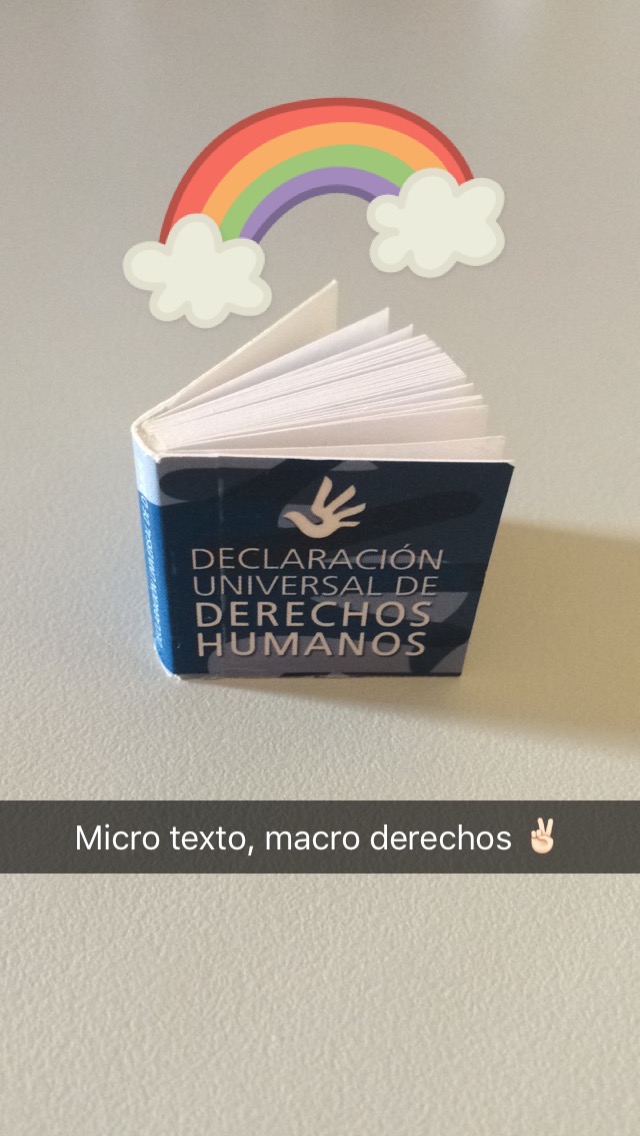Millennials or not, everyone wants to know the rules of the game
Let’s start by the beginning, what is a millennial? According to Wikipedia, millennials are the members of the so called Generation Y. That means boys and girls that were born starting in 1982. However, some people extend that date until the year 2000.
So, although I barely pass, I’m a millennial. :p
The concept «millennial» was cooked by William Strauss and Neil Howe when talking about the children born in 1982 and that would go to college with the beginning of the new millennium. In fact, William and Neil published a book called «Millennials Rising: The Next Great Generation» in 2000.
And that’s how the term was born.
What are the traits of a millennial? Generally speaking: a) they are part of the most educated and culturally diverse generation that the world has ever known; b) millennials are politically liberals; c) they experiment some kind of Peter Pan syndrome, so they delay their incorporation to the «adult» world; d) millennials aren’t very religious and; e) they use technology extensively (to the point of being considered «digital natives» almost by default).
Finally, the most important fact. From 2020 and beyond, and just in the USA, millennials will represent more than half of the job market.
Therefore, a millennial is 16-34 years old, with mid-high academic training, that uses plenty of technology and is going to become the workforce of the present and future.
Are they interested in Law? Of course. In fact, they are already entering the sector and some of its traits are going to have a huge impact on the way legal services are provided. For example, they have less «empathy» with the clients. The thing is that in theory millennials are less skilled on the interpersonal communication. So, they are worse for the usual client-lawyer relationship based on trust. The reason is that a millennial focuses more on the digital aspects of communication and less on the face-to-face part.
Which service is the most used by millennials? Snapchat, and the difference is significative.
For those who do not know the service, Snapchat was born in 2011 as an ephemeral messaging app. That means that the content sent through the app disappears once the recipient gets it (with some exceptions). It has spread like wildfire to the point where it has become the social network of millennials.
In June 2016 it exceeded Twitter in daily active users, with more than 150 millions. A user usually spends almost 30 minutes on it. Besides, 60% of its users are 13-25 years old. So, there is no doubt that is the place to go for millennials.
For that reason, institutions and big companies such as the White House, Buzzfeed, People or National Geographic have opened an account to share its content.
Should we create an account?
Taking into account everything said so far, it seems quite logic to go into the world of Snapchat to talk about Law. Obviously,taking into consideration the audience and the service. But after all, registering on Snapchat to talk about Law makes a lot of sense.

In addition, plenty of Law students, the ones that started recently or the ones that just ended their formation, we’ll probably be there.
Therefore, from the Legal LAB of Términos y Condiciones, we are opening a profile on Snapchat to talk about Law and Technology to reach the future, and present, of the legal sector. We are also embracing it as an experiment to communicate and promote legal content beyond the usual formats and channels.
And as every project that we do, this is a long term project. So, there’s not hurry.
Here you can scan our code if you want to add us. User name: lextyc
We snap on Spanish, usually.

What kind of legal content can be shared on Snapchat? Well, we have been trying it for a month and truth be told, the app is quite peculiar. Definitively nothing similar to Facebook or Twitter and with some specific features.
For example, you can’t share links. The moment and the instant comes first (although now you can share old content through something called «Memories»). Pictures and videos are the way to go, and the idea is to improve or transform that picture or video through stickers, drawings and text.
In addition, anything shared will last 24 hours at the most (the «My Story» feature is the best option to share legal content for everyone who follows the account). In fact, Snapchat is another silo of information because everything shared is not stored on the device (at least in theory) and does not exist on Google or any search engine.

Even so, the possibilities are very interesting: visually appealing news capsule, a snapshot of a «boring» text that almost comes to life or small legal stories thanks to the feature «My Story».
Therefore, quality legal content on Snapchat can be done. Although it needs some planning, it has to be attractive and useful for the audience aimed at.

So, from now on, we’ll use the Snapchat of «Términos y Condiciones» for: useful and visually attractive legal capsules, info and details about legal or technology events that we attend, visual summaries about the terms and conditions of a service or considerations about fiction Law, among others.
Let’s see as far as we can go. 🙂
Happy snap!
—–
